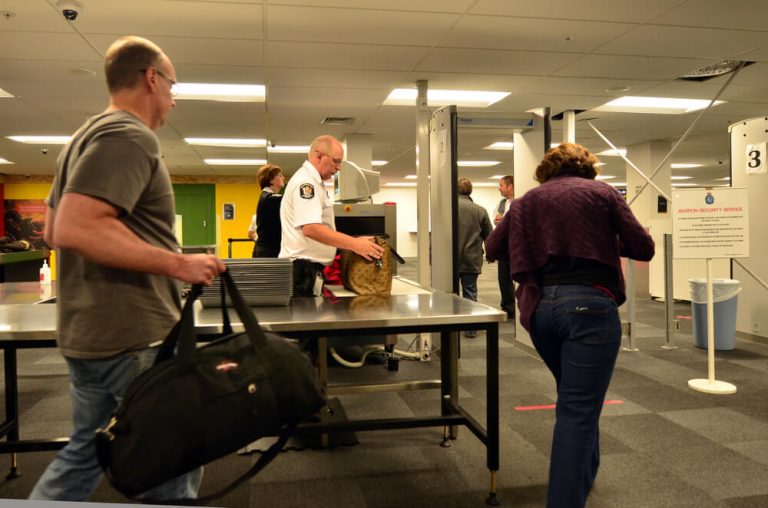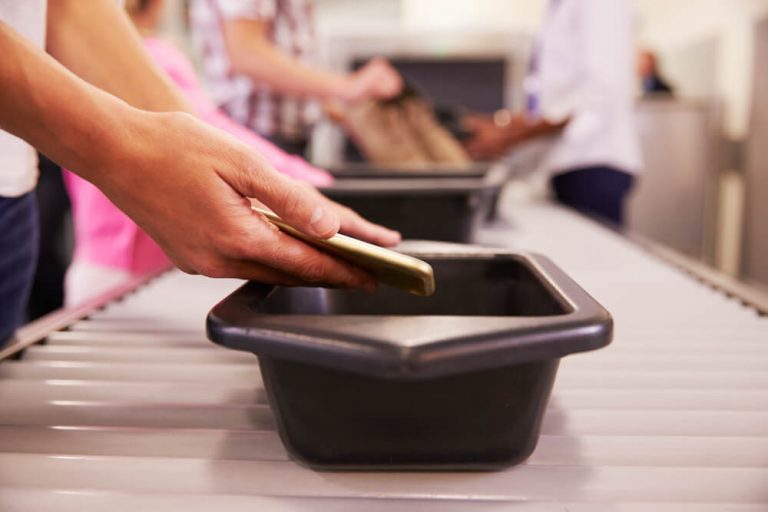
Article written by Axis Geffen
No matter how light you think you packed for your trip across the border, if you brought your cell phone, then you are likely bringing over more than you thought.
Digital devices are pretty small in size, but the data they carry outweighs almost anything else you travel with.
Furthermore, there’s no guarantee that the data will remain private if you’re travelling.
While concern is mounting over Canadian border officers’ powers to search smartphones and other personal electronic devices, the Canadian Border Services Agency (CBSA) is permitted to search people and their possessions. The U.S. Customs and Border Protection Officers are also allowed to do this. So what does this mean for you?
Could my phone really get me in trouble?
While we all know not to sneak in produce, meats, dairy products, etc., but few of us realize that we may have videos, photos or other files that are banned or prohibited in the country we are entering. If the agent finds any of those items on your phone, you could be penalized. You could be in potential trouble even if you were only joking with your friend through text about having a weapon on you.

Agents do have the ability and right to randomly select anybody, review their device(s) – in detail – and lay charges based on their findings. While the data that is easiest to access will be the priority, there are circumstances in which your online banking information, social media accounts, and cloud accounts could be accessed by the agent at the border crossing.
What can I do to protect my privacy?
The safeguards differ from border to border, but in the case of the CBSA, turn off your WiFi, Bluetooth, and disconnect from the internet before reaching the border. In many cases, searches must be limited to what is actively available on the device when it is accessed.
There is no guarantee that emails and text messages won’t be read by an agent, so wipe anything you don’t want to share and then clear the cache of your device. The agent may choose to create a forensic image of your device and if they do, they have a perfect copy of everything on your phone.

Although you can password protect your device, and you may choose not to provide that password if asked for it by an agent, non-compliance doesn’t tend to end well. People have had their items seized by CBSA after refusing to share their password with an agent.
Best practices
- Leave your device(s) at home.This is the best way to protect yourself. If it doesn’t cross the border, no one can access it. Make sure to back up your device(s) before you go.
- Turn off all devices or have them in Airplane Mode when crossing.This doesn’t guarantee that your data will remain private, but more work is more work and sometimes the extra work isn’t worth the effort.
- Make an awesome password (this article tells you how to do that) and enable encryption on your phone. Again, this doesn’t guarantee that your information won’t be examined, but it helps.
- Reduce your data on your device(s). The less information you carry or have links to, the less they can see.
- Enable two-factor authentication. This works best if the second device is not with you when you are crossing the border.
- Fully encrypt every device and drive. More work is more work.
- If you have specific files that are considered privileged, put them together in one fully encrypted folder with password protection and make sure it is clearly marked. This strategy might not work, but it does create the argument that the agent didn’t need to search what was clearly identified.
Digital devices, travel and privacy have become such significant issues for Canadian travellers that a handbook was developed to address concerns. It is available here. As always, understand that rules change often, and sometimes without notice, so please do treat this as a guide.
%201.png?)
